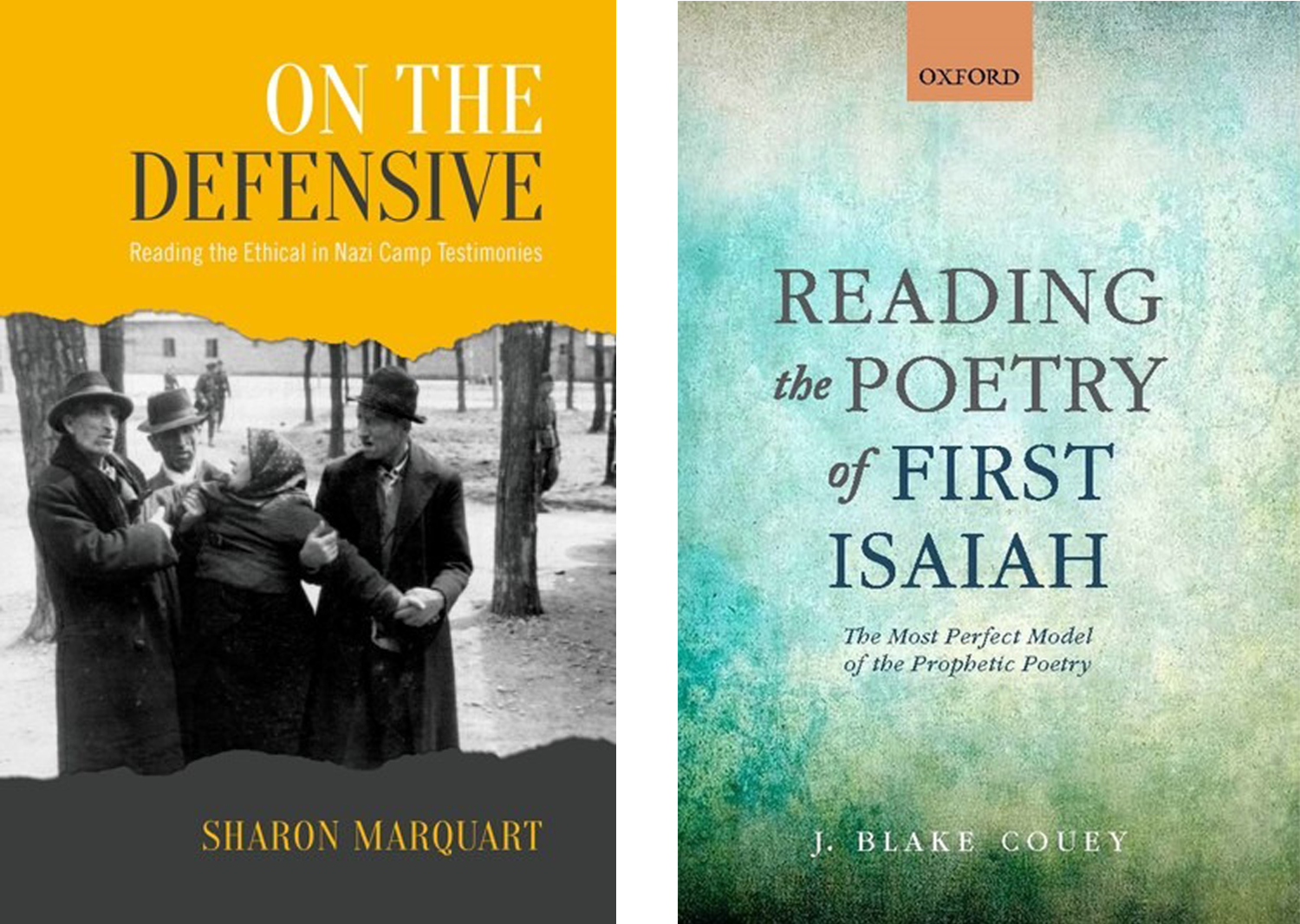The Bookmark hosted a book release event for Professors Blake Couey of the Religion Department and Sharon Marquart of the French on October 29.
Couey’s book Reading the poetry of First Isaiah: The most perfect model of the prophetic Poetry analyzes the poetic style of the book of Isaiah chapters one through thirty-nine. The book discusses the ways in which the lines are formed, metaphors, and how poetry was an effective route for Isaiah to communicate his religious ideas. Couey majored in English and Religion in undergrad at Mercer University in Georgia and has always been interested in the way these topics can interact. After studying the Hebrew bible, or old testament, Couey noticed a gap in scholarly works on this section of the Hebrew bible.
“You can’t just wait for inspiration to strike.”
— Sharon Marquart
“When I started studying the Hebrew bible or old testament I noticed that this part of the book of Isaiah really hadn’t gotten a lot of attention in terms of its poetic style. There was a need for this kind of study” Couey said.
Couey is currently on sabbatical working on his second book, a commentary on the first half of the book of Isaiah. This commentary will work through, verse by verse, of the first half of the book of Isaiah in great detail and build upon some of the themes explored in Reading the poetry of First Isaiah: The most perfect model of the prophetic Poetry.
The Bookmark event acted as a venue for Couey to show off some aspects of his job that aren’t as public.
“Most people on campus see the teaching side of what we do as professors- but there’s this other side of our work that mostly goes on in our offices that I think a lot of people, particularly students, don’t see.” Couey said.
For Couey, it was also informative to learn about Professor Sharon Marquart’s book On the Defensive: Reading the Ethical in Nazi Camp testimonies.
“It was really fun to see how even though we’re in two different fields, studying two very different things, there were actually some interesting points of similarity between our books that I wouldn’t have expected” Couey said.
“There’s this other side of our work that mostly goes on in our offices that I think a lot of people particularly students, don’t see.”
— Blake Couey
Sharon Marquart is a visiting professor from Wilfrid Laurier University in Canada, and this is her second book publication.
On the Defensive: Reading the Ethical in Nazi Camp testimonies explores how our ethical responses to the holocaust have served as a form of holocaust denial.
“What I’m arguing, that’s pretty contentious, is this idea that the ways that we consider to be ethical, aren’t as ethical as we think they are.” Marquart said.
The idea for this book originated in Marquart falling in love with the work of writer Charlotte Delbow, an Auschwitz survivor who lives in France. Marquart saw the lack of work on the development of Delbow’s ideas and wanted to figure out how to incorporate her personal interests in Dlebow’s work with something that would be of interest to other people.
“I decided I wanted to write on her to begin with- I stared to notice how different what she was doing was in comparison to so many other famous authors. I decided I was going to fill this hole in the scholarship” Marquart said.
On the booking writing process, Marquart emphasizes the importance of putting your work out there to receive feedback, and also scheduling in time to write, in her own works: “You can’t just wait for inspiration to strike.”
Marquart has already started on another book about humanitarianism, which is still in its developing stages. This book will follow up on how our ethical responses can be, at some times, problematic.
“Good writing starts with good reading. There is a whole lot that goes into writing a book that you don’t see at all.”
—Sharon Marquart
For students, who may be planning on one day publishing a book of their own, Couey and Marquart give these words of advice.
“Be prepared to do a lot of revision. But on the flip-side, there will come a point where you’re still not completely satisfied with it but you have to let it go- you’ve done as much as you can do and you have to come to terms with that.” Couey said.
“Good writing starts with good reading. There is a whole lot that goes into writing a book that you don’t see at all. You have to go through all that process before you can write anything.” Marquart said.
According to both Marquart and Couey the book writing process ebbs and flows, with moments of high inspiration and productivity mixed in with moments of doubt.
Marquart advises students who may one day write a book to make sure to take care of yourself, and separate your writing life with your personal life. She also acknowledges, “Having cats helps too”.
